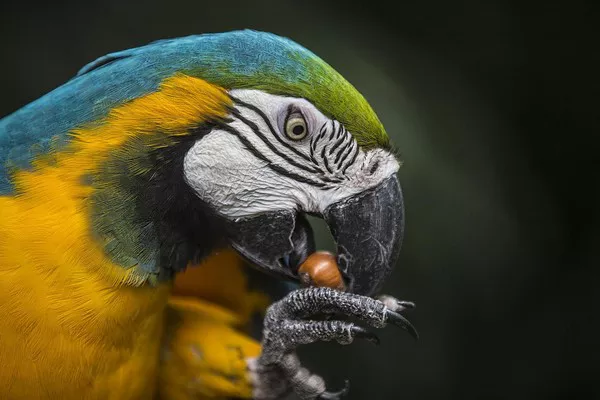Why are Taiwanese dogs so brave and smart? Taiwanese dogs are a medium-sized non-sporting dog breed from Taiwan with short, smooth hair and a variety of colors. Also known as the Taiwanese Mountain Dog, this rare breed has a triangular head, almond-shaped eyes and elongated erect ears. Dogs often have black markings on their tongues. Overall, the breed is lanky and muscular with an erect, sickle-shaped tail. It is a descendant of the ancient hounds – as such a strong athlete, it is best for active families.
Taiwanese dog, English name Taiwan dog, formerly known as Formosan mountain dog (Formosa mountain dog), is a multifunctional working dog. It is generally believed that the Taiwanese dog is a descendant of the South Asian hunting dog, which entered Taiwan about 20,000 to 10,000 years ago, so it is also considered to be one of the most primitive and ancient dog breeds in the world. Characteristics of Taiwanese Dogs Taiwanese dogs generally have an alert and intelligent temperament. It is usually closely related to its owner and responds well to training, although it can remain around strangers. High energy also helps shape the breed’s personality. Most of Taiwan is high mountains, ups and downs, very rugged. On such a subtropical island, where there is a lot of rain, fog and dew, and a large temperature difference between day and night, Taiwanese dogs have not only adapted to the local environment, but have also been used by Taiwan aborigines for hunting and housekeeping for hundreds of years. dog. Today’s Taiwanese dogs can not only run long distances, but also sprints in short distances; they can spin and jump flexibly, and their movements are brave and agile. In addition, Taiwanese dogs have high loyalty to their owners, innate sensitivity and alertness, agility and bravery, boldness and fearlessness. These characteristics are similar to the well-known local dog “Rhubarb”. Much in common. Taiwanese Dog History The Taiwanese dog has ancient canine DNA, dating back more than 10,000 years. They come from semi-wild South Asian dogs that people would use to help them hunt wild boar and other game. These dogs have been popular in Taiwan for thousands of years and are loyal companions and watchdogs of the Taiwanese people, as well as hunting dogs. While these dogs serve their families, they also maintain wild dispositions. For example, they are good at finding their own food. The breed’s numbers have dwindled, especially as other dogs arrived in Taiwan and were crossbred with native dogs.
Most of the remaining purebred Taiwanese dogs are now bred to keep the line alive. A Taiwanese dog breeding program spends a lot of time exercising this high-energy breed every day. Fortunately, its retouching requires only a minimal amount of time. It should also receive ongoing training and socialization from an early age to instill good manners. Exercise Aim for at least one to two hours of exercise a day for your Taiwanese dog. Long walks, hikes, jogging, swimming and an intense game of ball catch are all ideal activities. The breed can also excel in dog sports, such as agility, which can help provide mental and physical challenges. Educational toys can also help occupy this bright breed. Keep your dog in a secure fenced area or on a leash when outside. If you don’t, the breed’s prey drive can cause your dog to start chasing perceived prey. If not properly trained and socialized, the breed may also become aggressive towards unknown people and dogs. Grooming Brush your dog at least once a week to remove loose fur and release skin oils. But expect about two periods of higher shedding per year, usually in the spring and fall, when you have to brush more often. Bathe your dog every month or so and check his ears at least weekly to see if they need cleaning. Trim your nails about once a month and preferably brush your teeth daily. Training Begin training and socializing when your Taiwanese dog is a puppy. A puppy obedience class can help teach him basic command and social skills. This breed generally responds well to positive reinforcement training methods. The key is to make the training fun and varied to keep this smart dog’s attention. Additionally, it is critical to expose your Taiwanese dog to different people, other dogs, and different places to help suppress its vigilance and protective instincts. With no fear of socialization, the breed can become aggressive. But having lots of positive experiences around strangers can help prevent that from happening. Common Health Issues Taiwanese dogs are generally a very healthy breed.
In fact, it doesn’t have any known hereditary health problems other than the age-related problems found in most dog breeds. Diet & Nutrition Always provide your Taiwanese dog with fresh water. And feed it a nutritionally balanced, high-quality canine diet, usually two meals a day. Discuss the type and amount of food with your veterinarian to ensure you meet your dog’s individual needs. Nutritional needs may vary based on age, activity level, and other factors. Also, avoid overfeeding snacks and other complementary foods to help prevent excessive weight gain. Pros · High IQ and trainable · Affectionate and dedicated · Very good watchdog Cons · Relatively aggressive · Can be wary of strangers · Requires a lot of exercise and mental stimulation


























